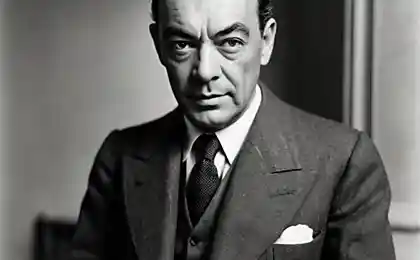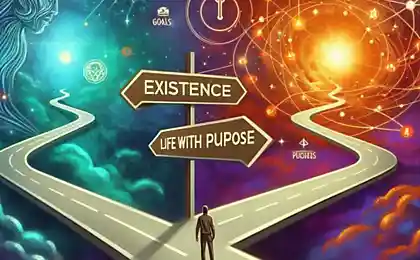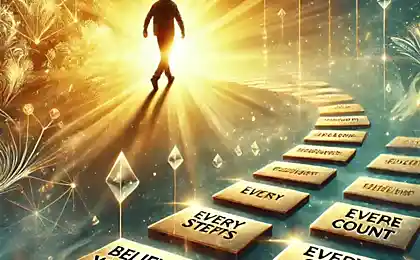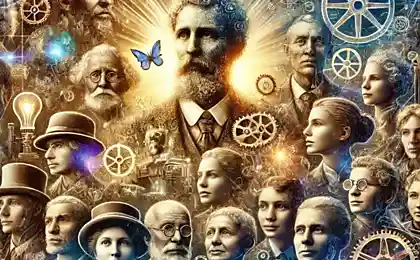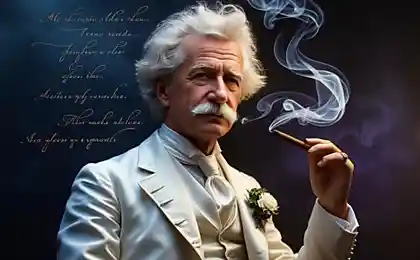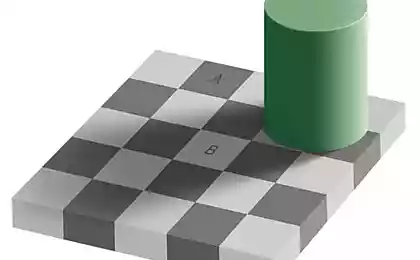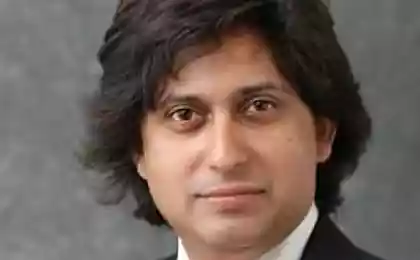157
7 Interesting Questions to Rethink Your Life
If you feel that it is time to rethink life, ask yourself these questions – they will help you to look at the world and yourself differently.

In the hustle and bustle of everyday life, we rarely stop to think about the deep questions of existence. Philosophers and psychologists have argued for centuries that right questions have transformative powers. They can change our perception of reality, reorient life priorities and open up new horizons of self-understanding.
Neuropsychological studies show that the process of reflection activates the prefrontal cortex, an area responsible for self-awareness and planning for the future. When we ask ourselves deep questions, we literally rewire neural connections to form new patterns of thought.
The Science of Self-Knowledge: Why Questions Change Us
Socrates, who laid the foundations of Western philosophy, believed that “unexplored life is not worth living.” Modern cognitive psychology confirms his intuition: the process of metacognition – thinking about one’s own thinking – is a key mechanism for personal growth.
Interesting fact: A University of Pennsylvania study found that people who regularly practice reflective self-examination showed a 23% higher level of life satisfaction and 31% better indicators of psychological well-being.
Seven Transforming Questions
1. What would I do if I knew I couldn’t fail?
This question reveals our true desires hidden beneath layers of fear and social expectations. Fear of failure is one of the most powerful limiting factors in human behavior. Neuroscientist Amit Soman of Duke University has found that the notion of no risk activates areas of the brain associated with creativity and long-term planning.
Practical advice: Write down the answer to this question without editing your first thoughts. Then select one action from the list and do it in the next 48 hours – even at a minimum.

2. What beliefs did I inherit without testing them?
Most of our basic beliefs are formed in childhood through social learning. Psychologist Albert Bandura has shown that we learn behaviors and belief systems through observation, often without critical analysis. This question activates the process of deconstruction—the conscious revision of inherited thought patterns.
Consider your beliefs about money, relationships, success, and family. Which ones are yours and which ones are echoes of others’ voices? Anthropologist Joseph Campbell called this process the “hero’s journey” – going beyond the familiar world in search of one’s own truth.
3. What do I do out of a sense of duty and what out of sincere desire?
The distinction between internal and external motivation is the cornerstone of the psychology of self-determination. Researchers Edward Desi and Richard Ryan found that actions based on intrinsic motivation lead to greater satisfaction and better outcomes.
Create a mental map of your daily activities. Note the ones that inspire enthusiasm and those that are perceived as a duty. This will help identify areas of life that require revision or transformation.
4. What version of myself am I hiding from others?
Carl Jung introduced the concept of "shadows" - the hidden aspects of personality that we suppress or deny. Paradoxically, the integration of shadow aspects often leads to greater integrity and authenticity. Modern research suggests that people who embrace their darker sides exhibit higher self-esteem and lower levels of anxiety.
Research technique: Write down moments during the week when you feel the need to “play a role” or hide your true thoughts and feelings. Look for patterns in these situations.
5. What do I want to be remembered for in 100 years?
This question shifts the focus from immediate problems to long-term legacy. Psychologists call this the “mortality prospect,” the awareness of the finiteness of existence as a motivating factor. Research shows that thinking about one’s own mortality paradoxically increases one’s vitality and desire for meaningful achievement.
Imagine yourself as an archaeologist of the future studying the traces of your life. What “artifacts” of your existence will be found? What story do they tell about who you were and what you thought was important?

6. What moments do I feel most alive and present?
Psychologist Mihai Csikszentmihalyi described the state of “flow” – moments of complete immersion in activity, when time seems to stop. During these periods we are most effective, creative and happy. Neurophysiological studies show that the flow state is accompanied by a unique configuration of brain activity, in which the activity of the “passive mode network of the brain” – the area responsible for self-criticism and anxious reflection – decreases.
Analyzing your “peak experiences” can reveal hidden talents and point the way for professional and personal development. You may find that your true calling is radically different from your current activity.
7. What would I do if I had unlimited time and resources?
This question helps to go beyond practical limitations and connect with deep desires. Our dreams often seem unattainable because of false beliefs about lack of resources or time. However, research shows that many “impossible” goals become achievable with proper planning and gradual progress toward them.
Psychologist Tim Kasser found that people who focus on inner goals (personal growth, relationships, helping others) exhibit higher levels of well-being than those who focus on outer goals (wealth, fame, appearance).
The Art of Right Questions
It is important to understand that questions themselves are only a tool. Their transformative power is revealed through the practice of honest self-reflection. It is recommended to allocate special time to work with each issue - at least 15-20 minutes in a calm atmosphere.
Method of in-depth study: After the initial answer to each question, ask additional questions: “Why is this important to me?”, “What emotions does this answer cause?”, “What prevents me from acting in accordance with this understanding?”. This approach will help to penetrate deeper than superficial reactions.
From reflection to action
Self-knowledge without subsequent change remains an intellectual exercise. Every insight must be transformed into concrete steps. Start small: Choose one awareness from your answers and articulate three small actions you can take in the coming week.
Remember, life is not a problem to be solved, but a mystery to be lived. The right questions do not provide definitive answers, but open up new dimensions of existence, making the path more conscious and meaningful.
Long-term practice: Revisit these questions every three months. You will be surprised how your answers will change as you grow and experience.
Glossary of terms
Metacognition The process of conscious thinking about one’s own thought processes, “thinking about thinking.”
reflection Deep self-examination, analysis of one’s own thoughts, feelings, motives and behavior.
Prefrontal cortex The area of the brain responsible for executive function, planning, self-control and self-awareness.
Flow status Psychological state of complete immersion in activities characterized by loss of sense of time and maximum efficiency.
Network of passive mode of the brain A neural network active at rest, often associated with self-referential thinking and “mind wandering.”
Shadow (by Jung) Hidden, suppressed, or denied aspects of the personality whose integration contributes to psychological integrity.
Internal motivation Inducement to action, proceeding from internal interest and satisfaction from the activity itself.
Authenticity correspondence of external manifestations of the personality to its inner essence, sincerity in self-expression.
Why Fear Can Become Chronic and How It Harms Your Health
5 Habits That Make a Girl Take You For granted
